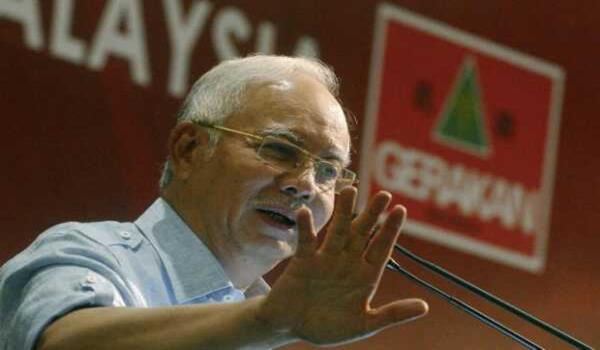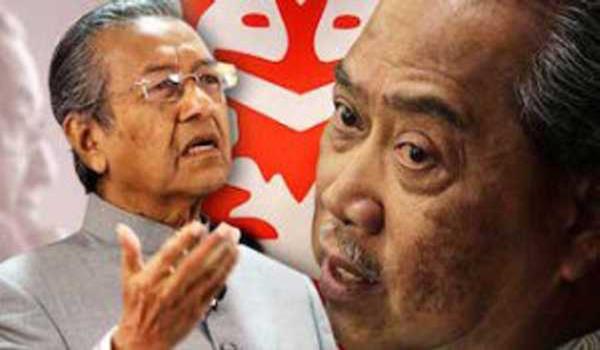I mean, what is going to happen after Najib is ‘put to death’ (metaphorically speaking, of course)? My friend then admitted that he had not thus far thought beyond that. His focus was just regarding getting Najib out and not about what happens after that. And he admitted that he really did not have a clue.
A football game is very straightforward. In football you try to prevent the ball from being kicked into your goal and you try to kick the ball into your opponent’s gaol. That is the main and only objective of a football game. In politics, however, it is not so straightforward. In politics, what you see is not what you get.
And this is what many newcomers to politics, those who have been politically active since 2007-2008, or quite recently since 2013, cannot seem to grasp. To these newcomers, it is all about kicking the ball into the opponent’s goal. So what is so complicated about that?
If politics were just like a football game then maybe this would be true. All you need to do is to score a goal. What is so hard about understanding this? But unlike in a football game, in politics your own team players are as much the enemy as those players from the opposing team. Sometimes, even, your own team players are even more an enemy than those players from the opposing team.
So sometimes you allow the ball into your own goal to ‘hurt’ certain players from your own side. Or you block players from your own team from scoring even if that results in a lost goal. Or you throw a game and allow the other side to win if that helps ‘hurt’ certain people such as your team captain, manager, patron, etc.
In politics it is not about scoring goals or about winning the football game. It is about what happens after the goal is scored or after the game is won. You do not just look at the game. You look beyond the game. So sometimes you make sure the game is lost so that what you want to see happen after the game does happen.
So do not look at politics as if it were a football game. Politics is not about scoring goals or winning games. It is also not just about the 11 players on the other side. It is sometimes about the other ten players on your own side as well. And the other ten players on your own side are more important and more a threat than the 11 players on the other side.
In short, in politics there are no sides, there are only players. And if you cannot understand this then you have no business being in politics. And politics is not for the faint-hearted. You have no friends in politics. You only have enemies. Everyone, those from your own side as well as those from the other side, are enemies. And those from your own side can be worse enemies than those from the other side.
Of course, in politics you make alliances. But you do not make alliances with friends because you have no friends in politics. You make alliances with enemies, enemies from your own side as well as enemies from the other side. And these alliances are not permanent. They are temporary. They will last only as long as the alliance serves your interest and when they no longer serve your interest the alliance ends.
Students of history will know that alliances were made since the beginning of time and then would be broken as soon as the alliance no longer serves its purpose. This is not a betrayal. This is called pragmatism or realpolitik. Realpolitik is defined as diplomacy based primarily on considerations of power and on practical and material factors rather than explicit ideological notions or moral or ethical premises.
So there you have it. Ideology, morality and ethics have no place in realpolitik. Realpolitik is about power, pragmatism and materialism. This is what politics is all about and if you thought otherwise then you are downright silly and are a greenhorn who has no business even talking about politics, let alone being involved in politics.
So that brings us to the title of my article today: Why Najib can’t be toppled. I suppose you can also change that title to: Why Najib must be toppled. You may not realise it but both mean the same. Whether you choose one title above the other depends on your realpolitik and what you hope to see.
The truth is there is no wrong or right title. Both titles are right. This is because wrong and right are subjective and depends not only on your value system but also on your objective, aspirations and desire. Ideology, morality and ethics play no part in this.
For example, PAS is being accused of betrayal: betrayal to the Pakatan Rakyat cause. But then what precisely is the Pakatan Rakyat cause? Is not the Pakatan Rakyat cause mainly to take power from Barisan Nasional? But why does PAS want to take power and replace Umno at both state and federal level? Of course, it is so that it can further its objective and this cannot be done unless it is in power.
So PAS joined Barisan Nasional when it was formed in 1973. But when it could not further its objectives because Umno blocked it all the way, PAS left Barisan Nasional.
Then, in 1990, PAS teamed up with Semangat 46 to fight Barisan Nasional. Semangat 46 was formed, as Tengku Razaleigh Hamzah said, to save Umno and to ‘restore the old Umno’. The fact that Semangat 46 was originally supposed to be called Umno Malaysia was proof enough that Semangat 46 was about Umno.
Was this what PAS wanted, to help save Umno and to ‘restore the old Umno’? Of course not! PAS wanted to replace Umno, not help to save Umno. But then it teamed up with Semangat 46 whose objective was to save Umno. Why?
Simple. This is called realpolitik. Semangat 46 was opposed to Umno Baru, as was PAS. So it is a case of an enemy of my enemy is my ‘friend’ (at least temporarily until I no longer have any use for this ‘friend’ and then we part company).
What PAS did in 1973 and again in 1990 just shows that PAS is a real political party and understands what realpolitik means.
Azmin Ali refuses to abandon PAS and to kick out the PAS EXCO members from the Selangor state government. In fact, he wants PAS to join the new opposition coalition, Pakatan Harapan, in spite of DAP being against that. That is called realpolitik.
Lim Kit Siang now supports Tun Dr Mahathir Mohamad in spite of condemning that old man and calling him nasty names for more than 30 years. In fact, he even wants Dr Mahathir together with Tun Musa Hitam and Tun Abdullah Ahmad Badawi to take over the government. That is called realpolitik.
Dr Mahathir wants the Barisan Nasional Members of Parliament to work with the opposition Members of Parliament and support a vote of no confidence against the Prime Minister even if that will hurt Umno. That is called realpolitik.
I can go on and on and list down scores of examples but I trust the point has been made. And the point is in realpolitik it is not about kicking the ball into the opposing team’s goal and preventing the ball from being kicked into your own gaol.
Last month I had a long discussion with an old friend of mine who I have known since the 1970s and the subject was whether Najib was going to be ousted, in whatever way possible. Basically he was talking about Najib’s political ‘death’.
I replied that as a person of faith he should know we do not just talk about life and death but about life after death. Some Muslims, in fact, consider life after death as more important than life and death. So my question to him was: is he just focusing on life and death or has he taken into consideration life after death as well?
I mean, what is going to happen after Najib is ‘put to death’ (metaphorically speaking, of course)? My friend then admitted that he had not thus far thought beyond that. His focus was just regarding getting Najib out and not about what happens after that. And he admitted that he really did not have a clue.
So there you have it. My friend, as, too, many others I had spoken to, did not consider the post-Najib events. Their objective was merely to oust Najib and not that ousting Najib was the means to an end or to achieve a higher objective. And most did not know what to suggest or had considered the scenario after the Prime Minister has been kicked out by force.
We then discussed the various possible scenarios, which my friend had not thought about, and he finally agreed that ousting Najib without a solid post-Najib plan in place might not actually be the solution to a problem but instead will trigger a bigger problem.
And what exactly were those ‘various possible scenarios’ and ‘bigger problem’ that we discussed? Well, that is only for my friend and me to know and if you cannot figure this out for yourself then you should stop talking about politics because you are clearly not ready for the world of realpolitik.










